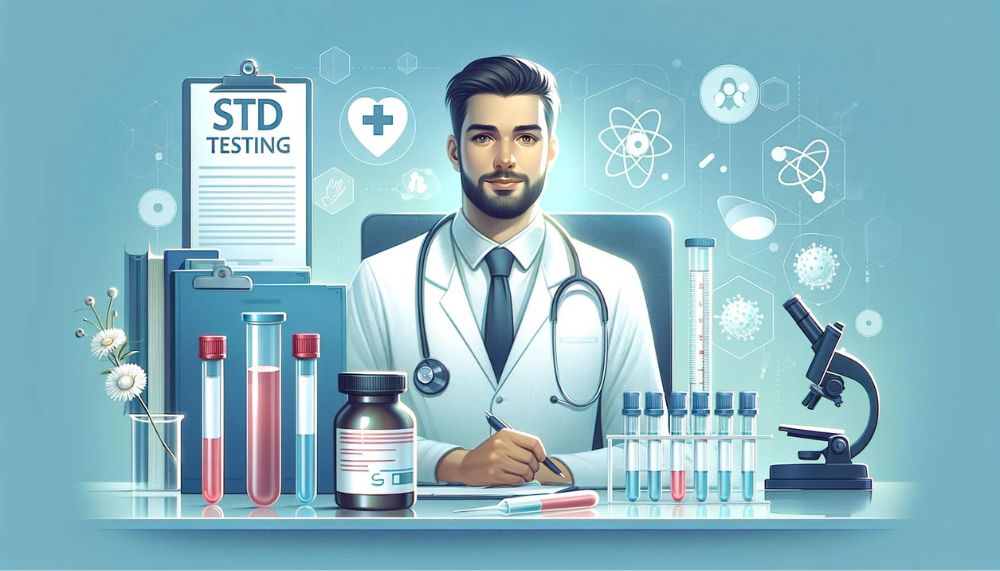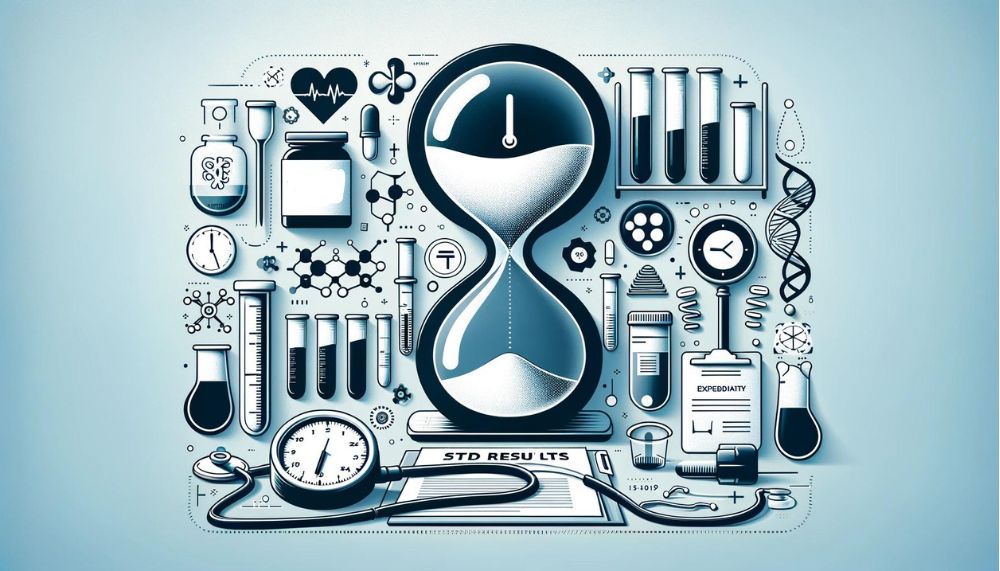
In a society where sexual health is vital, STD testing is critical to general well-being. However, the process of being tested for sexually transmitted diseases (STDs) may be intimidating or perplexing for several people. This article seeks to demystify the process of STD testing by providing insights into how to be tested, what to anticipate during the procedure, as well as the timing for getting results.
Understanding STD Testing
What Are STDs?
STDs, or sexually transmitted illnesses (STIs), are infections that spread largely via sexual contact. These illnesses affect people of all ages, genders, as well as sexual orientations; making it a major public health problem. Chlamydia, gonorrhea, syphilis, HIV/AIDS, herpes, and HPV are some of the most common STDs, each having its own set of symptoms, problems, and treatments.
It is pivotal for sexually active individuals to be aware of these illnesses as well as take the necessary precautions to safeguard themselves and their partners.
Importance of STD Testing
STD testing is essential for preserving sexual health and limiting the spread of illness. Many STDs may not cause obvious symptoms, making frequent testing critical for early discovery and treatment. Untreated STDs may cause major health issues such as infertility, pelvic inflammatory disease (PID), persistent discomfort, and a higher risk of HIV transmission.
How to Get STD Tested
Consult with a Healthcare Provider
The first step in being tested for STDs is to schedule an appointment with a healthcare professional. This might be a primary care physician, gynecologist, urologist, or a specialty clinic that provides sexual health treatment. During the session, individuals may talk about their sexual history, worries, and any symptoms they are experiencing.
Choosing the Right STD Tests
Based on the consultation and individual risk factors, the healthcare expert would recommend particular STD testing. Common STD testing includes the following:
- Chlamydia and gonorrhea are often checked using urine samples or swabs.
- Syphilis is diagnosed with a blood test.
- HIV/AIDS is diagnosed using blood or saliva testing.
- Herpes: Diagnosed using swabs from the afflicted region or STD blood testing.
- HPV: Screening may include a Pap smear or an HPV DNA test.
- Hepatitis B and C are diagnosed via blood testing.
In addition to specific tests tailored to individual needs, full panel STD testing may be recommended. This comprehensive approach screens for a wide range of STDs simultaneously, offering a thorough assessment of one’s sexual health in a single test.
STD Testing Process
After choosing the right test, the STD testing specialist will describe the procedure, including any required preparations or precautions. Depending on the kind of STD test, samples may be obtained by urine, blood, swabs, or physical examination.
Confidentiality and Privacy
It is vital to emphasize that STD testing is strictly private, and healthcare practitioners are required by law to preserve patient information. Individuals may be certain that their privacy will be maintained during the testing procedure.
What to Expect During STD Testing?
Sample Collection
- The method of obtaining samples for STD testing may differ based on the kind of test being conducted. Common ways include:
- Chlamydia and gonorrhea testing is done using urine samples.
- Blood test: Used to identify syphilis, HIV/AIDS, and hepatitis.
- Swabs may be obtained from the vaginal region, throat, or rectum to screen for STDs such as chlamydia, gonorrhea, and herpes.
Physical Examination
In certain circumstances, a physical examination is required, particularly if symptoms exist or there are concerns about specific STDs. A healthcare physician often performs this evaluation, which may include visual inspection of the genital region or a pelvic or genital exam.
The level of discomfort
While STD testing may cause pain or shame, healthcare personnel are trained to make the experience as pleasant, comfortable and non-invasive as possible. Individuals are urged to express any concerns or discomfort throughout the testing procedure.
Counseling and Support
Many healthcare institutions provide counseling as well as support services prior to, during, and after STD testing. This may involve discussing safer sex behaviors, offering STD prevention information, and addressing any emotional or psychological worries regarding testing or diagnosis.
How Long for STD Results?
Turnaround Time
The turnaround time for STD test results varies and based on the kind of test done and the laboratory that processes the samples. In most cases, STD test results are available within a few days to a week.
Expedited Testing
Some healthcare institutions provide accelerated STD testing for particular illnesses, such as HIV/AIDS, when quick testing procedures are available. These fast tests may offer findings in as little as 20 minutes, allowing for quick diagnosis as well as treatment.
Notification of Results
When the test results are available, the healthcare professional will inform the patient and explain the findings. In the event of a positive STD test, the healthcare professional will advise on treatment choices, follow-up testing, and precautions to avoid transmission to sexual partners.
The Confidentiality of Results
STD test results, like the testing procedure itself, are secret, and healthcare practitioners must follow privacy rules when providing them to patients. Individuals may be certain that their findings will be handled quietly and respectfully.
Similar Read: How To Tell Your Partner You Have An STD
Wrapping Up: Key Takeaways on Getting Tested for STDs
STD testing is an essential part of preserving sexual health and limiting the spread of illness. Individuals may proactively safeguard themselves as well as their relationships by learning how to be tested, what to anticipate throughout the testing procedure, and when results will be available.
Remember, that early identification as well as treatment are critical to treating STDs and alleviating their effect on overall health. Don’t be afraid to book an appointment with a healthcare practitioner to discuss STD testing as well as any doubts you may have about your sexual health. Your health and well-being deserve to be prioritized.
Advanced Care of Pasadena is your reliable partner for addressing your sexual health. Our expert staff knows the significance of remaining informed and proactive, which is why we provide comprehensive STD testing services tailored to your specific requirements. During individualized consultations, we explore your sexual history, concerns, and symptoms to identify the best testing for you. Our cutting-edge facility offers precise as well as consistent findings for a broad spectrum of STDs, including chlamydia, gonorrhea, syphilis, HIV/AIDS, herpes, HPV, and hepatitis. We value your privacy and confidentiality and never leak your valuable personal information.


